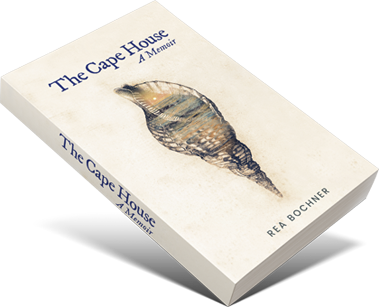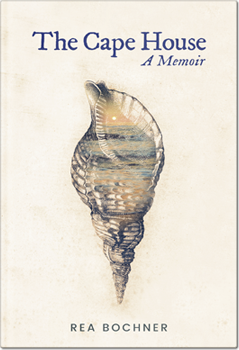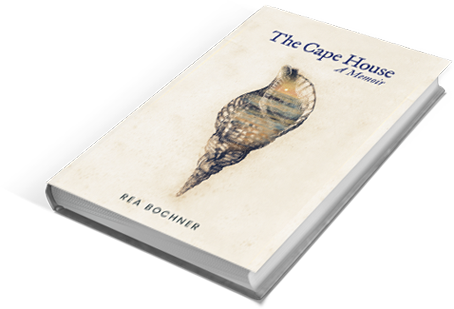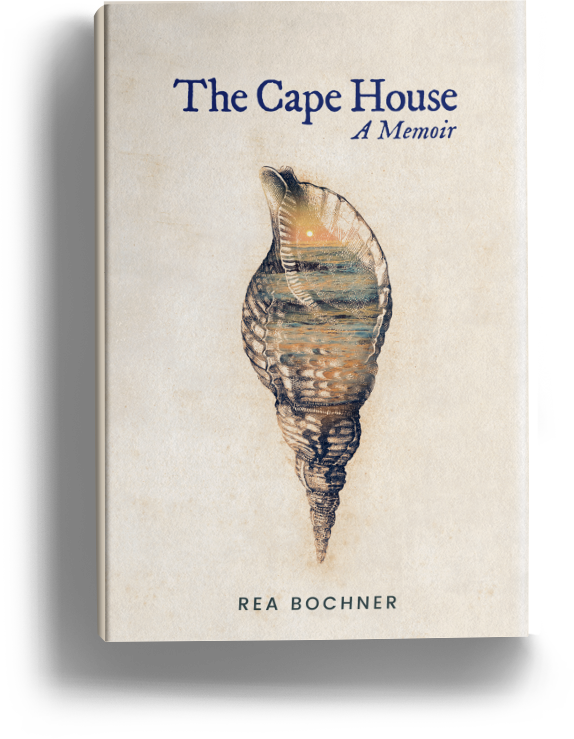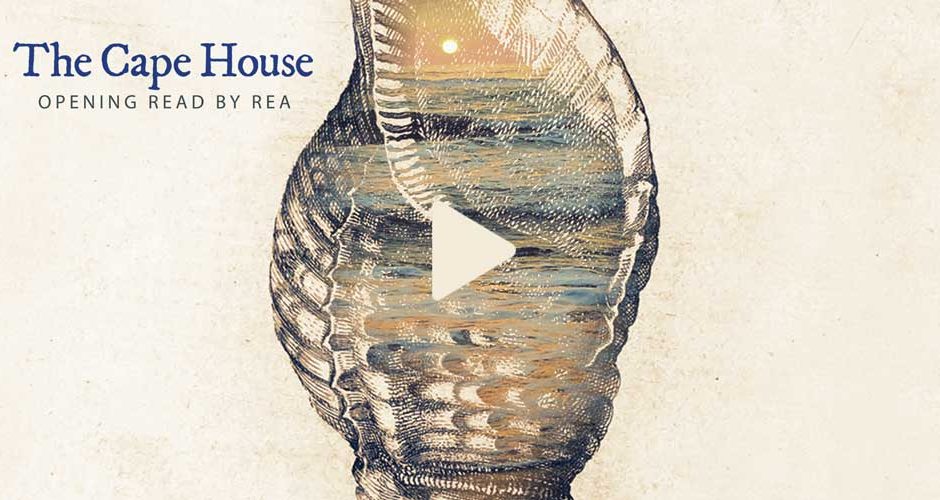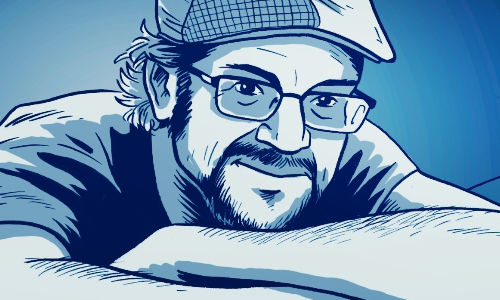For all of you audiobook lovers, here’s a little tidbit from the opening of “The Cape House,” read by yours truly. You’ll find the transcript below. Enjoy!
To download, click the link below:
“The Cape House” Opening
When I was a kid, I invented a game called “Kidnapped.” The gist was simple: I would hide in some dark corner of the house and pretend a good-looking psychopath was holding me hostage. Any funny business, he warned, and they’d find pieces of me in the dumpster behind Linda’s Rotisserie. Ignoring the inevitable urge to pee, I’d have breathless exchanges with my captor that made my arms tingle with goosebumps. Through wit and pluck, I’d loosen his guard enough to uncover a tragic backstory: the loss of someone with, say, blue eyes like mine. Eventually, he would agree to let me go, in exchange for a kiss, so I’d make out with the sleeve of my mother’s down jacket, then jet for the bathroom.
It was good, wholesome fun.
One afternoon, deep in my mother’s closet with Ralph Maccio from “The Karate Kid,” a ripple of tiny somethings, like a sheet of ants, brushed up against my skin. I heard an airy crinkle, the kind my tutu made when I bent into a plié, and my ears perked up. Crawling out from beneath Mom’s rack of blazers, I reached deep into the back, feeling around blindly until I found the ants again. Then I grabbed on and pulled.
They weren’t ants, I discovered. They were beads, shimmering like a million iridescent stars on a gown of apricot chiffon.
I caressed them, dazzled. Could this have been here for years and I’d never known?
The gown was heavy; I had to yank hard to get it off the hanger. As it billowed to the floor, I noticed something else, something black and pouffy, behind it. And behind that, a flash of purple velvet. Like a conquistadora, I unearthed a feast of evening wear: taffeta, satin, lace, and real fur, all rich, luxurious and breathing the scent of Mom’s Chanel Number 5.
I was so excited, I almost passed out.
I quickly set to work trying on everything. Being four feet tall, the sleeves on every dress stretched far past my fingers, the necklines drooped down to my belly and the trains pooled around my feet. But I slipped on a pair of Mom’s size-10 Stuart Weitzmans and strutted around her bedroom like Naomi Campbell. When my mother found me, she smiled as if it was perfectly normal to see her kindergartener swimming in apricot shimmer, waving to no one atop a mountain of evening gowns.
“Don’t you look hotsy-totsy!” she exclaimed.
I preened like a peacock. “Can I have this when you die?”
“Sure, Honey,” she said, not missing a beat. “You can even borrow it before I go.”
My mother told this story for the next twenty years, and it’s the one I think of as I pick through her closet for a fleece sweatshirt. This time I have her permission.
Even though Dad has the heat pumping constantly through this house, the New England cold right off the ocean sneaks in through the windows and burrows into my bones. I shiver my way through a good nine months of the year here, sipping desperately at mugs of Bengal Spice tea like a hamster from a water bowl. Thankfully, Mom lets me help myself to extra layers when I’m too lazy to climb the stairs to my room.
As I grab a baby pink sweatshirt, the telephone trills. The noise is jarring against the silence of the house, which has become a companion of sorts during this long, sleepy winter. Mom’s cell is on the caller ID.
“Heleh-o?” I say, exactly the way she does.
“What are you up to?”
“Stealing one of your sweaters.”
“Which one? The pink?”
“How did you know?”
“I’m your mother,” she says. “I know everything.”
Tucking the receiver under my chin, I absently wander into the little shul, the mini-synagogue my father built in what was supposed to be the dining room. When they first moved into this house, a gray, beachside McMansion, Mom took one look at the ashtray-sized room and dismissed it as a proper entertaining space. Dad, the owner of a summer home out of walking distance to a synagogue, claimed it for himself. He went into the garage, and, like Noah with his ark, grabbed some wood and his trusty electric saw and made a tall cupboard to house his Torah scroll. He mounted it on the wall and filled the bookshelves with classic titles of Jewish history, philosophy and folklore, along with the Talmud, the multi-volume code of Jewish Law. He also bought a hefty supply of prayer books for those who might come to spend the holidays. Mom was surprisingly game for this, and hung lace curtains embroidered with seashells on the windows that set a mosaic of shadows on the wood floor when the sun shone through them. (If she had to have a synagogue in her house, it should at least be a pretty one.) My parents’ collective effort resulted in the house’s coziest room, warm in the winter, cool in the summer, and miraculously, always quiet despite being right off the kitchen. By design, it’s a sacred space, a retreat for anyone who wants privacy.
“So any news?” I ask, perching on the arm of a wide, white leather chair.
“Nope,” she replies. “Still in quarantine.”
When my mother first told me a week ago that she was being quarantined in an Infectious Disease Unit, my first reaction was shock: “They still do that?” Quarantine struck me as one of those antiquated practices, like leeching, that the medical establishment abandoned when they realized the patient might as well drink Windex. But apparently, quarantine is still very much in vogue. Mom is on an entire floor of patients who have been shut away to protect the rest of humanity from their nuclear germs. From what Dad tells me, anyone who wishes to see her (except he) is required to wear full scrubs and a surgical mask.
“Is it weird to have everyone treating you like the boy in the plastic bubble?”
“Are you kidding?” she says. “I love quarantine! It’s like a hotel suite all to myself!”
Like the Four Seasons, I think, with blood transfusions.
She goes on, “Plus I have this nurse, Uri. He’s just out of the Israeli army and gorgeous. Curly hair, brown eyes, dark skin. Pure Sabra. He reminds me of your brother a little, at the end of the summer when he’s all tan…”
The woman is practically giggling. I can understand why, recalling the lean, swarthy soldiers I saw strutting around Jerusalem with M-16s hanging off their belts. There were always one or two of them on the busses I rode across the city, quick to flash their bright white teeth and flirt in perfect English. But if I was in Mom’s position, not even a young, rugged Israeli with a gun would have been able to keep me distracted from the facts: after a year of cancer treatment, the doctors have discovered a nodule in my mother’s lung. They don’t know if it’s a bacterial infection (hence the quarantine) or the cancer, spreading. While they run test after inconclusive test, she has to wait out the results in her antiseptic getaway.
“Do the doctors know anything yet?”
She sighs, long and deep. “Well, my oncologist came in about an hour ago. He sat down on the bed next to me and said, ‘You know, if this is more cancer, it’s terminal. We won’t be able to catch up with it. You’re looking at maybe six weeks.’ Then he gave me this little pat on the knee and left.”
The room seems to tilt a few degrees to the right, and I grab the armrest to steady myself. “Was that supposed to be a joke?”
“I don’t think so.”
“What did Dad say?”
“He was at minyan.” Every morning, my father leaves the house at 6 am to study Talmud and pray with a minyan, the required quorum of ten men.
“Wait a minute. You mean Dad wasn’t even there?” I’m yelling, though I’m not sure at whom.
“Yup. I got the good news all by myself.” She’s being flippant, which means she’s angry. I suppose I would be, too, if someone gave me a death sentence and then practically skipped away.
I’m quiet for a moment, staring at the pastel-colored spines of “The Little Midrash Says,” a children’s bible series I hated as a kid. “So he thinks it’s more cancer?”
“I don’t know what he thinks. We know there are cancer cells in my lungs. The nodule could be something else, but…” She trails off, an engine losing steam.
“But…?”
“If it is more Cancer, you’re probably going to be getting some company.”
“What do you mean?” I ask, but I know exactly what she means. She’s saying that if she’s terminal, she wants to come up here, to the Cape House, to die.
She knows that I know, so she doesn’t answer.
“You know, Ma, people live this way for years.”
“Well,” she says, “maybe I don’t want to live this way.”
